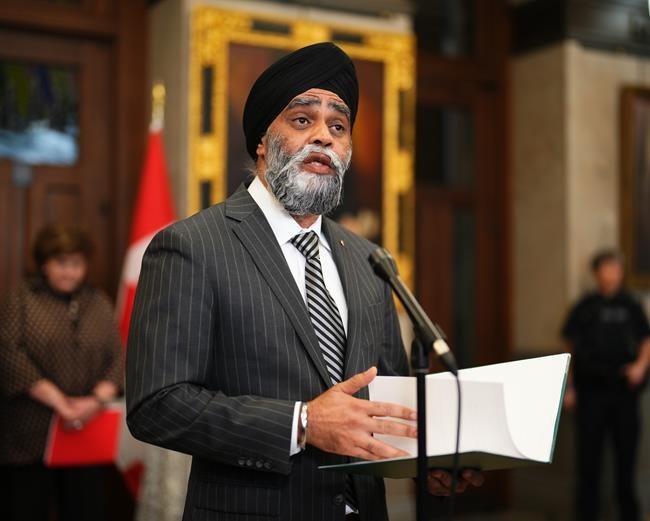OTTAWA — Humanitarian groups are giving Tuesday’s federal budget a thumbs down, saying a projected $1.3-billion cut to foreign aid will end Canadian projects andcreate a backslide in progress on fighting disease and hunger.
"There is certainly a gap between rhetoric and reality in this year's budget," said Kate Higgins, the head of Cooperation Canada, which represents more than 95 non-profits.
"It undermines progress on development and Canada's contribution to progress on development around the world."
The Liberal budget projects that Ottawa will spend nearly $6.9 billion for international development in the coming fiscal year, a 16 per cent drop from last year's allocation.
That's despite Prime Minister Justin Trudeau tasking International Development Minister Harjit Sajjan to increase aid spending every year.
The Liberals had budgeted for $6.6 billion in foreign aid for the 2019-2020 financial year before the pandemic began, and the government's response to COVID-19 and Russia's invasion of Ukraine boosted the amount to more than $8 billion by last year.
Ahead of Tuesday’s budget, officials warned the sector that Ottawa saw that bump as responding to exceptional circumstances, and that the Liberals might instead commit to building on the 2019 allocation instead of last year's.
"At a time of enormous need globally, the Canadian government has failed to deliver on its promise to increase foreign aid," wrote the coalition Bigger than our Borders in a statement.
Higgins said the cut will cause Canadian organizations to end multi-year programming as the world struggles with inflation.
"It undermines our security as a country and the contribution we are making to combat compounding global crises, whether that's climate change or the rollback on human rights and democracy, or COVID-19 scarring and the effect that that has had on education and health around the world."
Aid groups also said they were alarmed that this year's budget doesn't lay out funding plans for future years, nor does it outline how much aid is being sent to Ukraine.
"We're at the midpoint of the Sustainable Development Goals process, and there's been more setbacks than ever before," said Save the Children Canada head Danny Glenwright.
"Multi-year commitments require us to be planning, and to be able to show our international partners that we're in it for the long game, so that we can also influence other governments to join us."
Earlier this week, auditor general Karen Hogan suggested Global Affairs Canada had "reallocated money" from sub-Saharan Africa to support Ukraine and its neighbours.
Sajjan has contested Hogan’s characterization, saying an overall increase in aid spending meant Ottawa missed the overall target for the percentage of development dollars reaching Africa.
In any case, the lack of a separate allocation for Ukraine within the aid funding makes the numbers impossible to parse, humanitarian groups say.
"Transparency in our in our government's budget, of how we're going to support and how we're going to walk our talk, is essential," said Glenwright, who said Ukraine clearly has needs but other crises are being forgotten.
"This is not a time for us to step back on our responsibilities to children in the rest of the world."
Bigger than our Borders said that is a particular risk for this financial year, which is the last in the five-year funding cycle that includes commitments Canada made when it hosted the G7 summit in 2018.
"Without that renewed investment, four million girls and young women around the world are left with an uncertain future, as Canadian-supported education projects will end in the coming months."
UNICEF Canada head David Morley said in a statement that the budget doesn't address the reality that children are facing conflict, climate change, "soaring rates of malnutrition and the persistent socioeconomic consequences of a global pandemic."
He noted more children are in need of international assistance than in any point in recent decades.
This report by The Canadian Press was first published March 29, 2023.
Dylan Robertson, The Canadian Press




